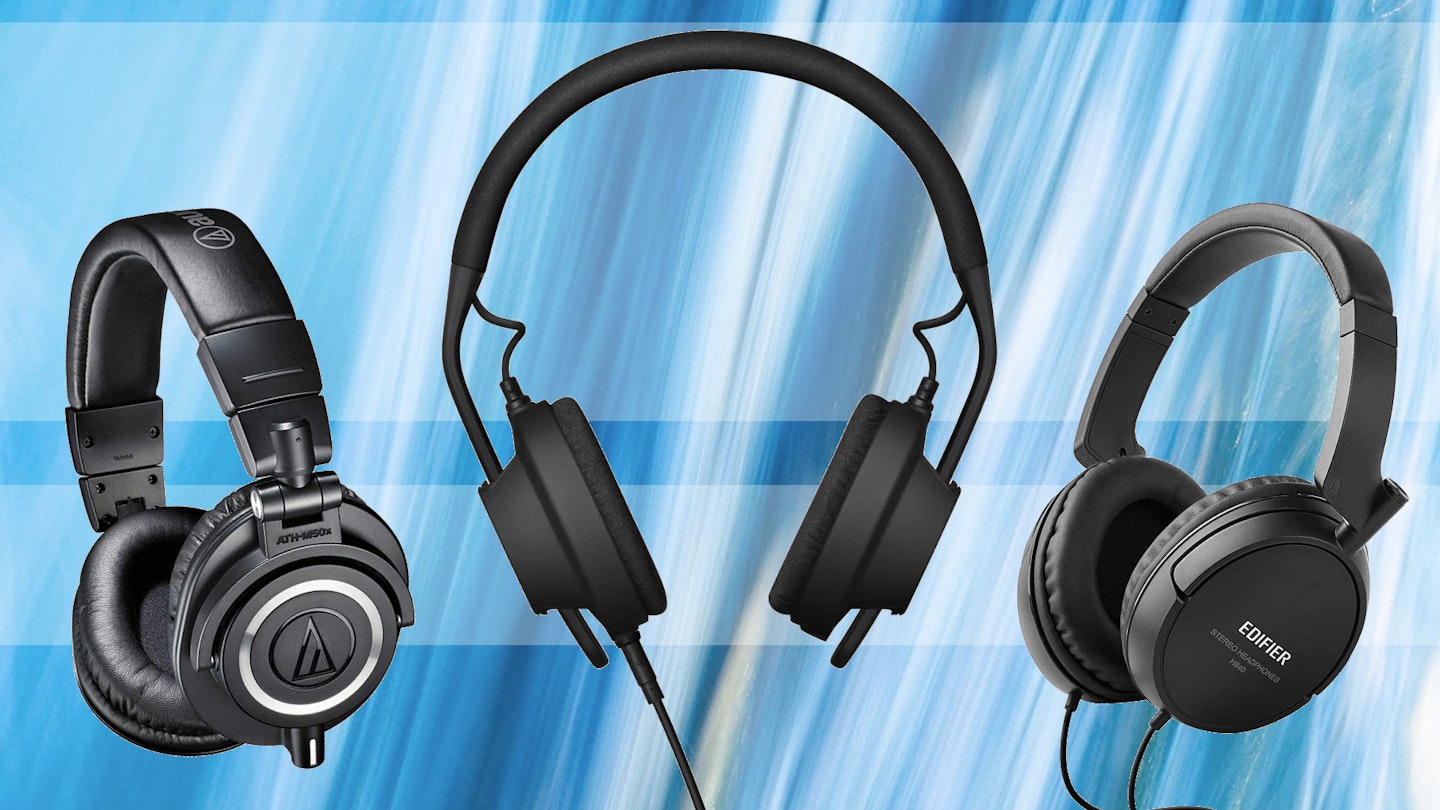For the ultimate high-fidelity, precise, crisp and rich sound wherever you go, you're going to need the very best headphones of the year - or in this case, the very best wired headphones.
Beats, Apple, Sony - choosing between these major brands and really knowing whether or not you're getting value for money can be an absolutely nightmarish rigmarole. Modern earphones, earbuds and wireless headphones have dominated the sound market recently as a more modern choice. Still, for many - they just can't deliver the same level of refinement that dedicated music lovers live for.
With an over-ear design, listeners will get the full soundscape intended by music artists - a heftier speaker means a more expansive, fuller and clearer sound compared to the much smaller bud design, which gives you a truer, more fulfilling music experience all-in-all.
Wired headphones have been a mainstay of the music industry and for audiophiles for decades for a multitude of reasons - the quality is significantly better, with a subtlety and precision that is often lost in Bluetooth connections simply aren't an issue for wired headphones.
Then there's access - without the fiddling with external apps, Bluetooth and battery life - a set of wired headphones involve plugging in and listening away, it's just that simple.
Here are the very best wired headphones of the year so far...
The best wired headphones of 2023
Best overall
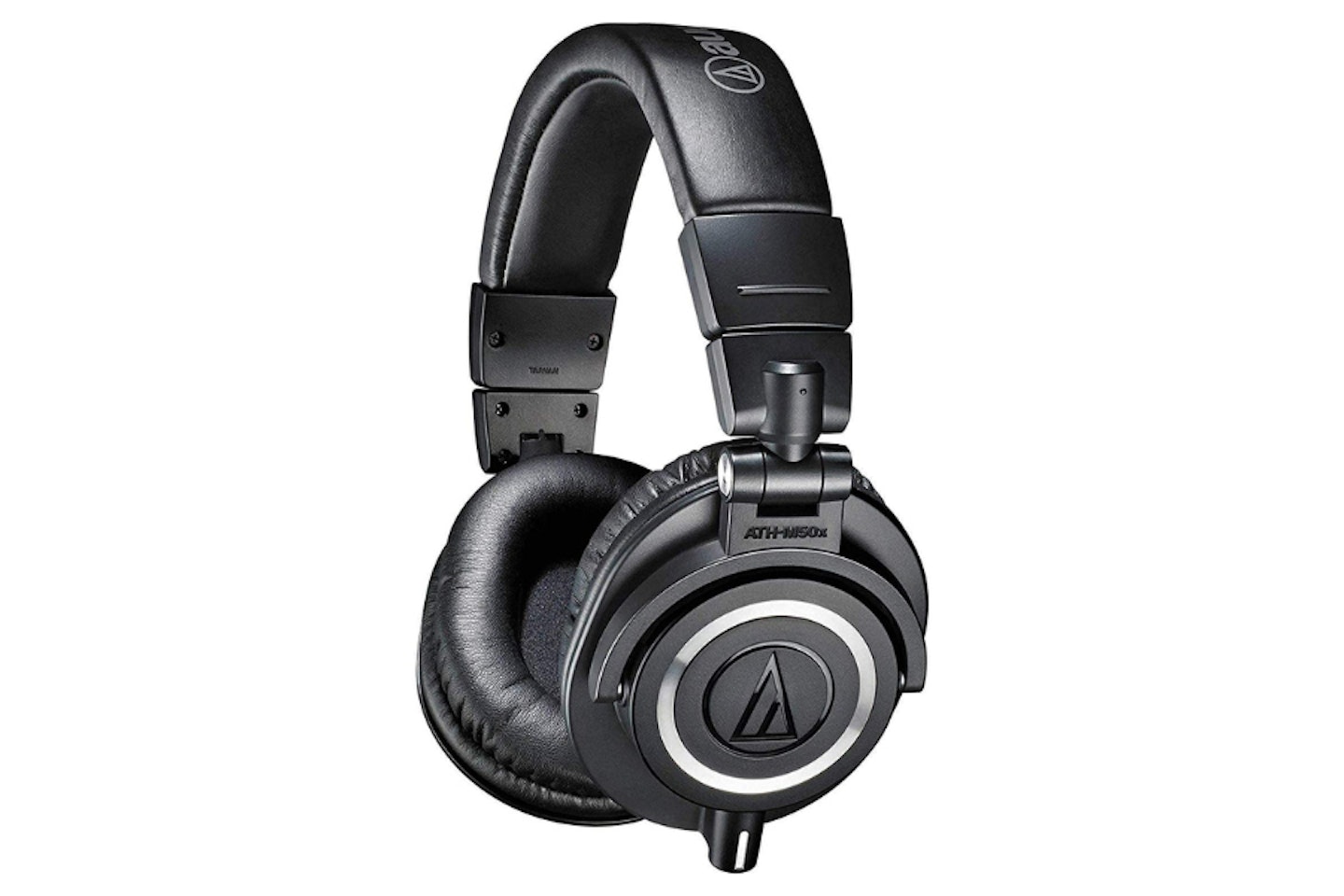
Like their wireless counterpart, the Audio Technica ATH-M50X pack a detailed and impressive sound into their uber-utilitarian, studio-friendly shell.
Based on a design originally intended for music producers, they deliver a wide, clear and pure audio experience that accurately captures the spirit of the artists' original release.
You'll never struggle to hear what's happening in a track, as everything is just right - frequency range, instrument separation, and volume.
Pros
- Solid, comfortable design
- Thick cups for noise cancellation
- Terrific mid-range sound for editing
Cons
- Not perfectly balanced
| Design: | Closed back |
| Driver Type: | 45mm |
| Frequency Response: | 15 - 28,000 Hz |
| Cord length: | 1.2m |
| Impedance: | 38 ohms |
| Weight: | 285g |
Best for studio mixing
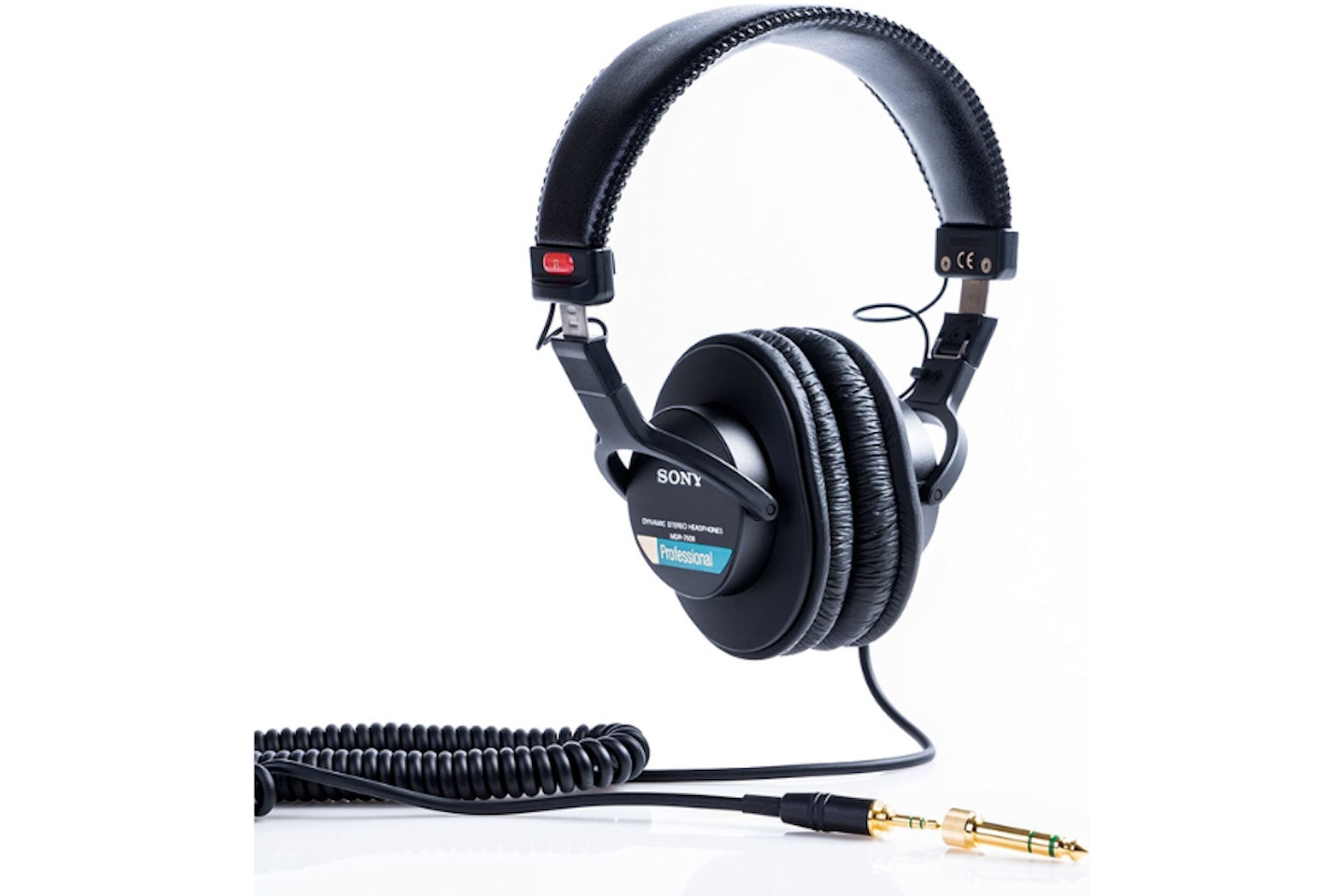
Since their initial release in 1991, Sony's MDR-7506/1 headphones have been a mainstay in recording studios worldwide, and it's no mystery as to why.
With some of the most excellent mid-tones in any headphones, let alone a pair less than £100 - Sony's MDR-7506/1 is simply perfect for catching those subtle sounds while editing and recording and isn't marred by any bass accentuation in the slightest, giving you a pure, clean and honest sound.
While aesthetically, the Sony MDR-7506/1 certainly isn't winning any awards, practically, it's in a league of its own. Excellent noise cancellation, a terrific three-metre coiled cord and reasonably light cans culminate in a listening experience that is largely unheeded by any sort of pinching that prolonged use tends to lead to.
On the note of comfortability, however, there are certainly some flaws in the materials that the MDR 7506/1 uses, namely on the headband itself, which can cause some discomfort when worn around the neck for too long.
All-in-all, despite its absurdly low price, the Sony MDR-7506/1 is a delight to use and will last you practically a lifetime.
Pros
- Excellent mid-high range audio
- Incredible quality for less than £100
- Good noise cancelling
Cons
- Comfortability and material quality are so-so
| Design: | Closed-back, noise-cancelling |
| Driver Type: | 40mm dynamic |
| Frequency Response: | 10Hz - 20kHz |
| Cord Length: | 3m coiled cable |
| Impedance: | 63Ω |
| Weight: | 230g |
Best open-cup design
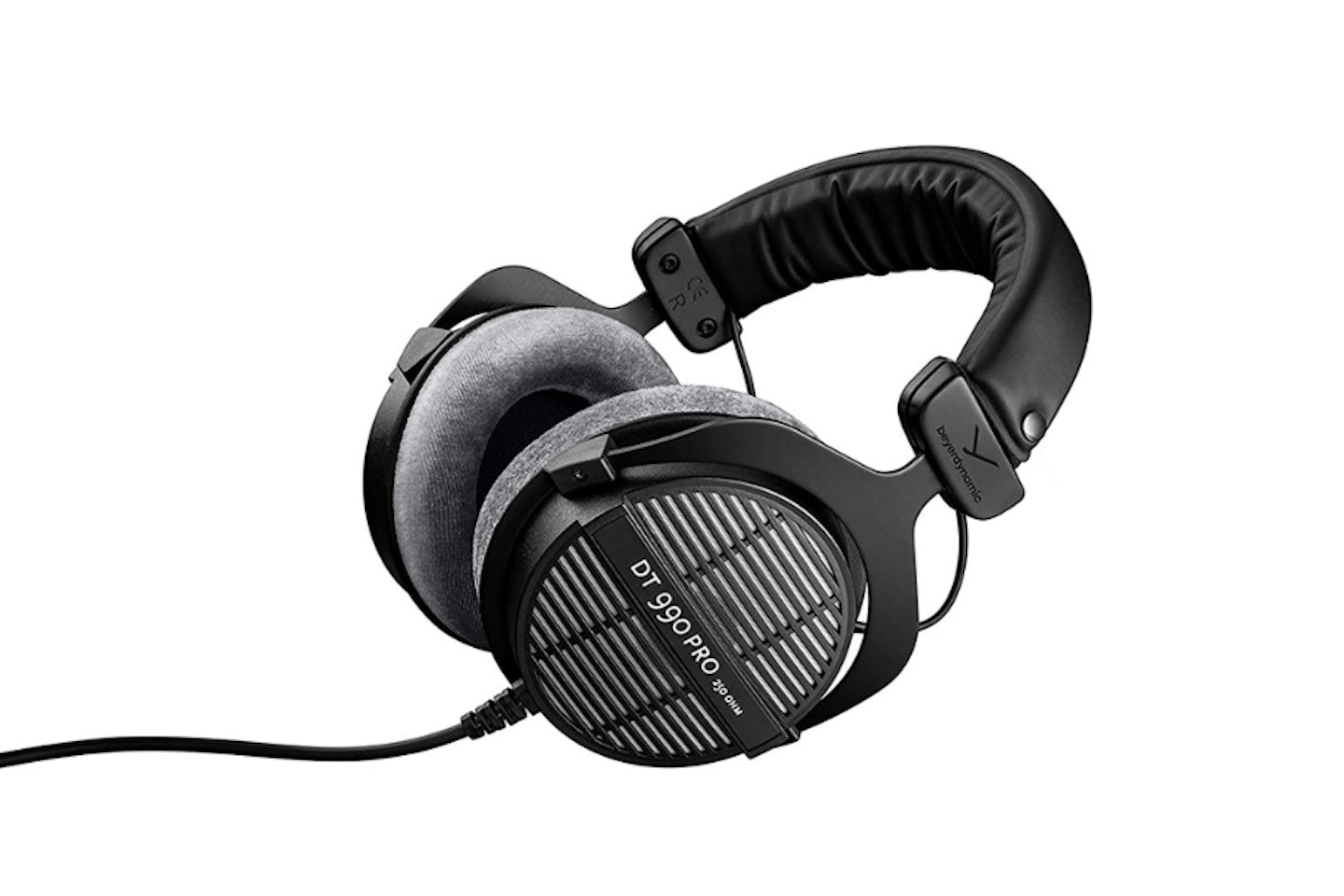
Want to enjoy the comfort of circumaural headphones but without the clammy noise cancellation? Beyerdynamic's DT990 pro headphones are the answer.
Bursting with great volume and excellent mixing, Beyerdynamic is renowned for its second-to-none audio engineering, and the DT990 Pros are a testament to this.
With an impedance of a staggering 250 ohms, audio fidelity is simply not a concern with the DT990 Pro's low-to-midrange frequencies particularly shine, giving you great sound regardless of what you're listening to - be it gaming, editing or enjoying some music.
At 250 ohms, however, the DT990s are enjoyed to their fullest with a proper amplifier simply due to the sheer demand of the headphones themselves, so be warned.
Pros
- Fantastic sound
- Great comfortability
- Breathable design
Cons
- Amplifier required
| Design: | Open back, velour ear cups |
| Driver Type: | Not specified |
| Frequency Response: | 5Hz - 35kHz |
| Cord length: | 3m coiled cable |
| Impedance: | 250Ω |
| Weight: | 250g |
Best mid-budget
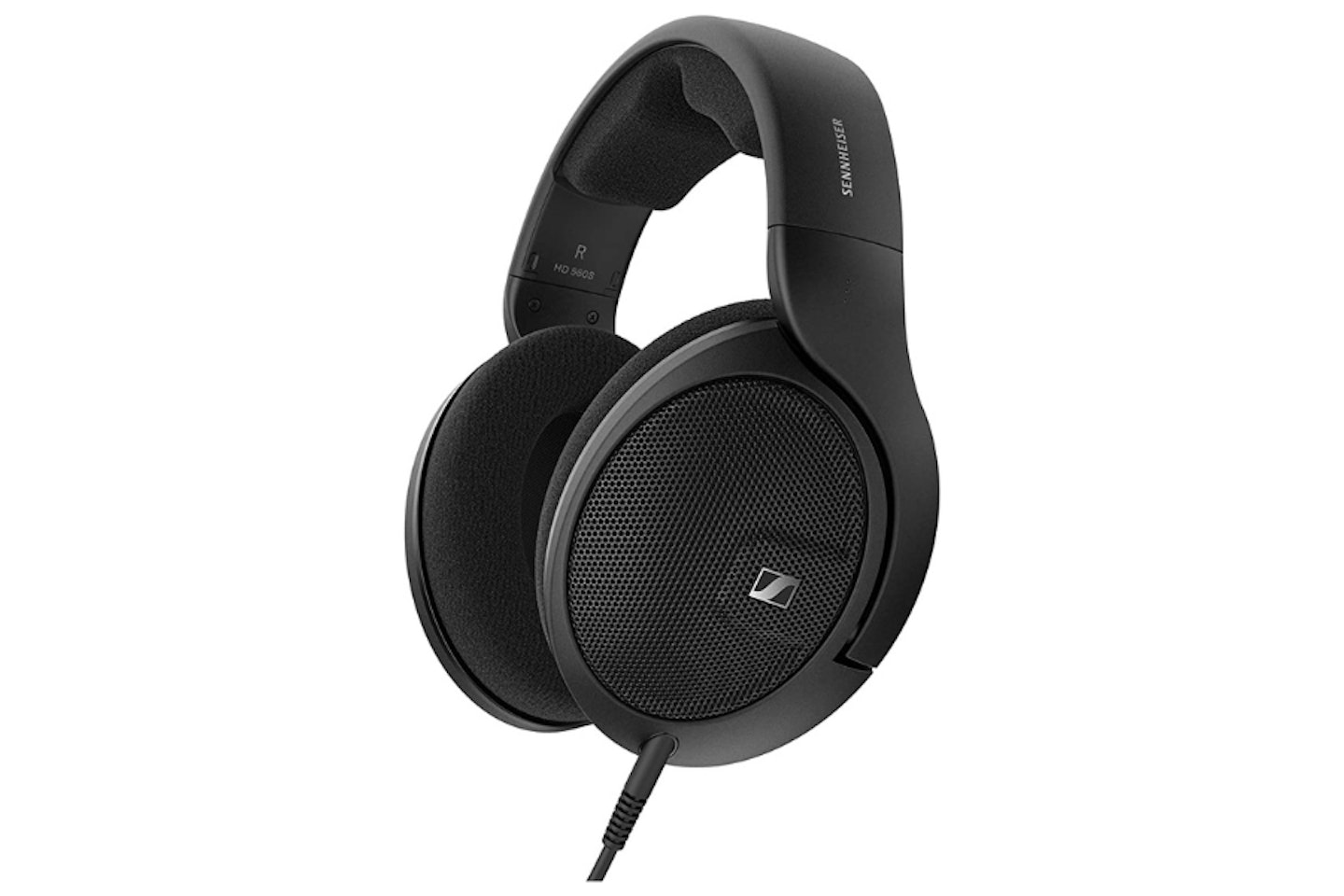
Gorgeously designed for the ultimate comfort and modern style - Sennheiser's HD 560S pulls no punches when it comes to enormous sound with wonderful bass and treble to boot.
Full of clarity and deep, rich sound that's enough to give you goosebumps, Sennheiser has outdone itself once again by providing second-to-none audio engineering at a fairly reasonable price.
Pros
- Excellent price for great quality
- Comfortable, breathable
- Great bass
Cons
- Slightly expensive
| Design: | Open-back, over-ear |
| Driver Type: | 38mm |
| Frequency Response: | 6Hz - 38kHz |
| Cord length: | 3m |
| Impedance: | 120Ω |
| Weight: | 240g |
Best high-end
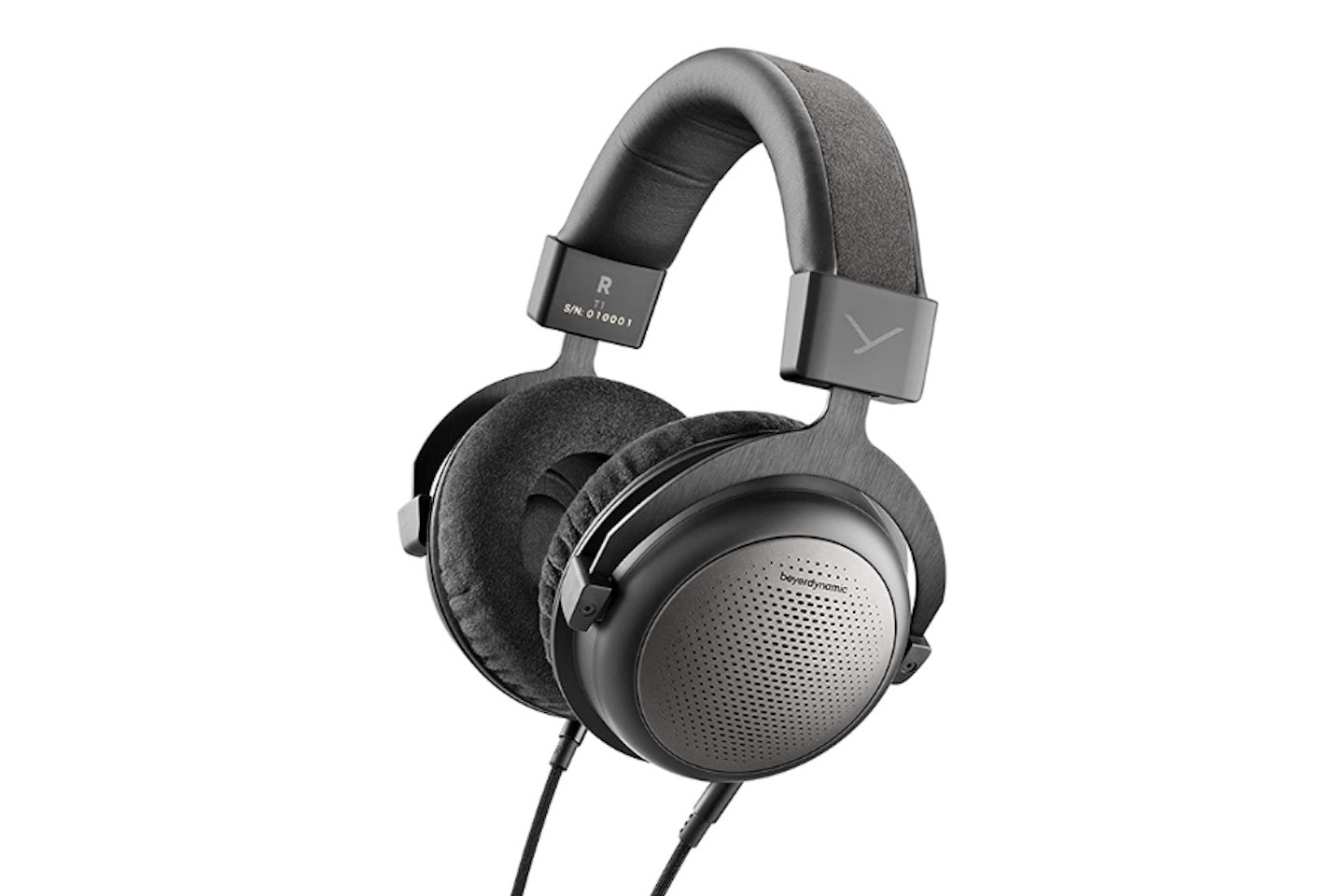
For impeccable sound, sometimes you've got to pay the right price - and at over £750, it's certainly a big investment, and yet with quality as close to perfection we've ever heard in a pair of headphones, it's a wonder how Beyerdynamic hasn't charged more.
The third-generation T1 headphones steal the show when it comes to absolute sound purity, there's no meddling with treble and bass to over-exaggerate the T1's sound - instead, out of the gate, you're listening to powerful, rich range unheeded by technical limits.
Everything from the T1's design oozes with quality, the plush velour ear cups with steel coverings, the simple yet pleasant headband - and the open design that allows for comfortable wear for hours on end.
Of course, if you've got deep pockets and enough cash to splash, the T1 headphones are the headphones for you, but if, like us, a £700+ price is a little steep - consider getting something else.
Pros
- Incredible cutting-edge sound
- Compatible with a range of setups
- Comfortable for hours
Cons
- Expensive
| Design: | Open design |
| Driver Type: | Not specified |
| Frequency Response: | 5-50,000 Hz |
| Cord length: | 3 metres |
| Impedance: | 32Ω |
| Weight: | 360g |
Best budget
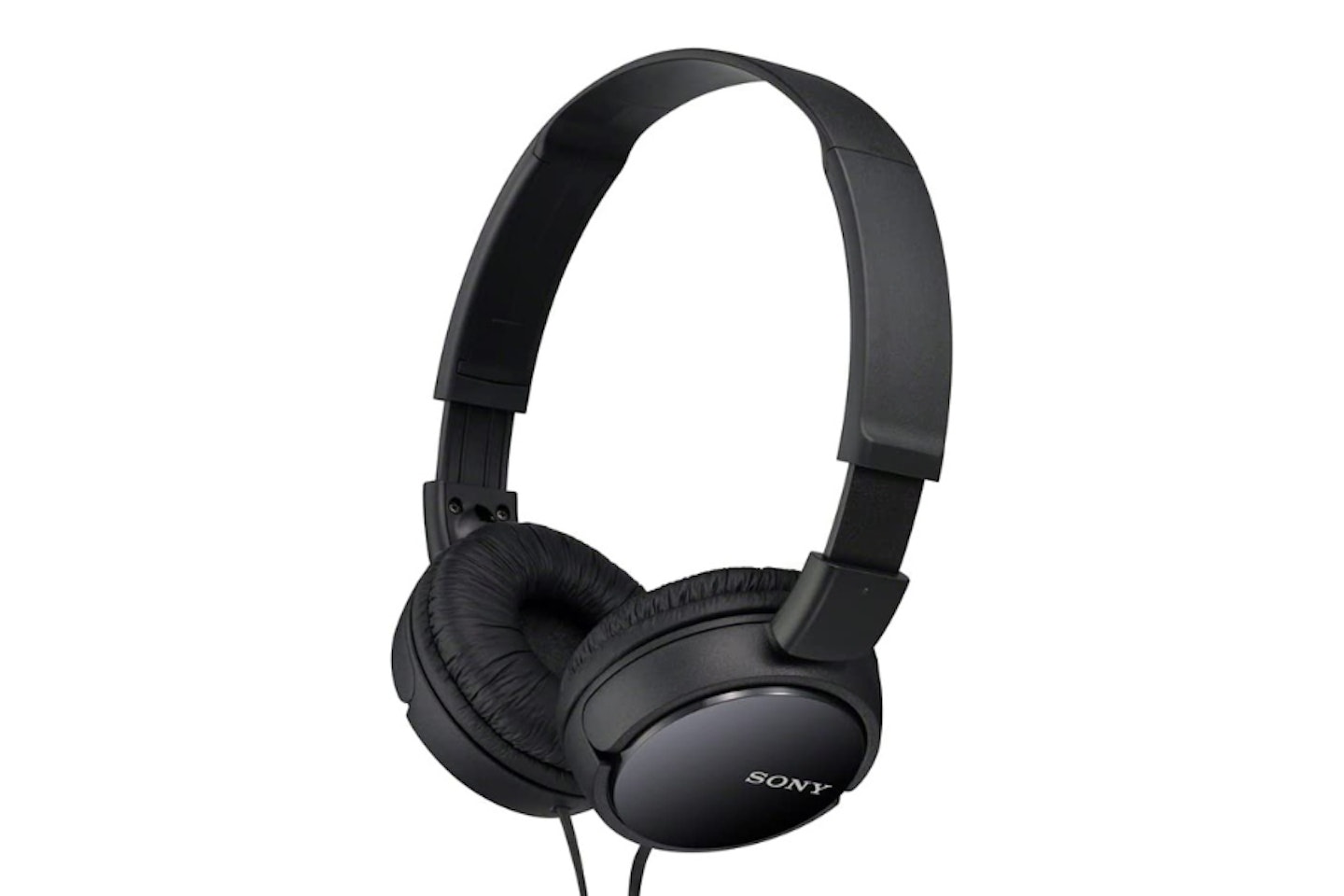
You might be tempted to sneer and turn your nose up at these less than £20 Sony wired headphones, but don't judge them too quickly, they're actually quite brilliant.
Yes, a lot of the subtlety of the high-end headphones is largely absent, the plastic headband is admittedly basic, but for its price, there's some nice (and at times almost too much) bass, decent volume and an aesthetic that is both nostalgic and appealing to the modern audiophiles alike.
With some rough edges here and there, this is far from the perfect listening experience, and yet we just can't seem to fault them - a great, sturdy pair of headphones for your day-to-day audio needs.
Pros
- Unbeatable value
- Well made for the price
- A good amount of bass
Cons
- Cannot compete with higher-end headphones
| Design: | Closed-back |
| Driver Type: | 30mm dynamic |
| Frequency Response: | 12Hz–22kHz |
| Cord length: | 1.2m |
| Impedance: | 24Ω |
| Weight: | 120g |
Are wired headphones worth it?
For audiophiles, DJs, and sound mixers, wired headphones are the best way of experiencing true sound without any extra bass tuning to overcompensate - it's the best way to listen to what a song should sound like, a pure audio experience that's more than worth the price.
Wired headphones generally experience far better sound quality than Bluetooth in general - which means that you're getting better value for your money.
What is headphone impedance?
Impedance is a measure of a headphone's resistance to the electrical current - the higher the Ohms, the greater the resistance.
A higher impedance often indicates that headphones have much more powerful driver systems with enhanced bass - but this also leads to problems with what systems are capable of running them.
What is a driver?
A driver is a device inside an audio speaker, be it headphones or an external speaker, that converts electrical signals into sound. Larger drivers tend to be able to deliver a more powerful sound with greater accuracy. Drivers are talked about in terms of their diameter, which is measured in millimetres.
Earphones tend to have drivers between 8mm and 15mm, while headphones have drivers between the size of 20mm and 50mm - this is why headphones tend to deliver superior sound quality to their in-ear cousins.
What are bass, midrange, and treble?
Bass, midrange, and treble are sometimes referred to as lows, mids, and highs. These terms refer to the different sound frequencies found in audio.
Bass, or low, is the boomier sections of sound, the frequencies that people can most often 'feel' - bass drums are an example of low frequencies. Without bass, audio sounds very empty and 'tinny'. Too much bass and music can sound rumbly, overpowering, and woolly.
Midrange, or mid, is all the stuff that happens in the middle - guitars, vocals, and speech. Balancing this with bass really brings audio to life. If you struggle to hear vocals in music or conversation in podcasts, boosting the midrange can bring these out for you without having to play with volume.
Treble, or highs (hi), is the high frequencies. These are important for picking out details in audio, but if they are too high they can annoy and be painful to listeners.
Ryan Houghton is a commercial content writer for What’s The Best, specialising in gaming, PCs, and televisions. As an English Literature and Film graduate, with an unhealthy obsession with PC gaming – when Ryan isn’t engrossed in writing about an enthralling new technological marvel, he’s probably sauntering about inside a decade-old, largely decrepit open-world RPG.
